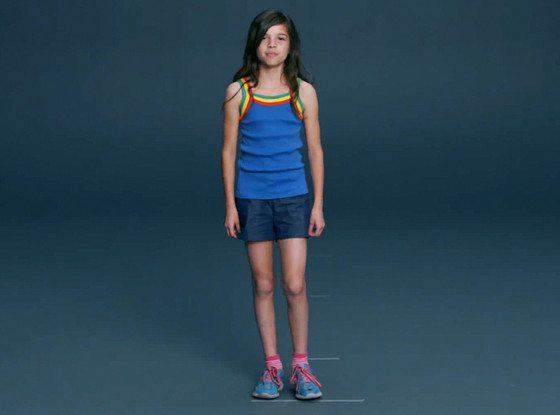OPINION
By Beth Kassab
Orlando Sentinel.
Confession: I’ve used the phrase “like a girl” as an insult.
Maybe I was watching college football and didn’t like a play. Maybe, 20 years ago, I was teasing my kid brother.
The saying is so common I can’t recall a specific instance, but I know it’s slipped out.
I heard the “like a girl” put-down countless times when I was growing up. So I believed it and repeated it.
That’s why the Super Bowl commercial by feminine product maker Always is getting so much attention, and has turned into the latest Twitter war. It encapsulated what so many of us were thinking in 60 short seconds.
Because here’s something else: I’ve never said “like a girl” around my daughter.
Somehow, as an adult raising a girl, I came to know the truth about that phrase.
I heard how mean those words could sound. How unfair the connotation that girls are weaker and meeker than boys. And the insinuation that that’s how it should be.
It’s not that I didn’t think the phrase was insulting as a kid. I knew it was.
As an adult I just wasn’t willing to accept it any longer.
If anybody questions whether a campaign to boost girls’ confidence is needed today, all you need to know is that moments after the ad aired on Sunday night the hashtag “like a boy” was trending on Twitter.
“Seriously #likeagirl is the most insulting commercial ever and there better be a #likeaboy commercial,” tweeted one user.
Said another, “#LikeABoy because I can actually run and throw” and “Everyone’s self esteem drops during puberty. It’s called puberty #SuperBowIXLIX #LikeABoy.”
There was plenty of blowback from women and men who pointed out that “like a boy” isn’t used as an insult.
And there was no shortage of indignation from people who said men were throwing a hissy fit simply because girls got a little attention during America’s extravaganza of masculinity.
The “like a boy” offensive didn’t surprise me in the least.
I get comments from readers all the time who tell me to “go back to my sewing circle” or to “stick to child-rearing and stay away from politics.”
Without fail, when I write about sensible gun laws, more than one reader will write to tell me how sorry I’ll be one day when I get raped.
I don’t have any illusions about changing the minds of people who live in the 19th century.
But campaigns such as “Like a Girl” could make a difference for my kids’ generation.
The commercial is directed by Lauren Greenfield, the mastermind behind the “Queen of Versailles” documentary about wealthy Floridian couple Jackie and David Siegel.
In the commercial, Greenfield asks people to run, fight and throw “like a girl.”
Most of them, a boy, women who appear to be in their early 20s, and a man about the same age, use limp, flailing arms and exaggerated, uncoordinated leg movements.
When Greenfield asks young girls to demonstrate the same movements they simply do their best. Run fast. Throw hard. Fight tough.
Presumably, the little ones’ ideas of being a girl haven’t been tainted yet.
My own 6-year-old daughter watched the commercial and agreed with the other little girls. She demonstrated her own fierce kicking and throwing.
That’s how I want her to stay.
This doesn’t mean we have to start labeling everyone who uses the phrase “like a girl” as sexist.
That’s not productive. Or accurate.
The phrase isn’t the equivalent of certain epithets for races or gay people that should be banished from our vocabularies.
But the message needs to change.
Not every little girl can throw like Little League phenom Mo’ne Davis. Neither can many little boys.
What if throwing like a girl meant throwing like Mo’ne?
Or, as one woman in a longer version of the Super Bowl commercial asked, “Why can’t ‘run like a girl’ also mean ‘win the race’?”
Good question.
___
ABOUT THE WRITER
Beth Kassab is a columnist for the Orlando Sentinel














































































































































































































































































































































































